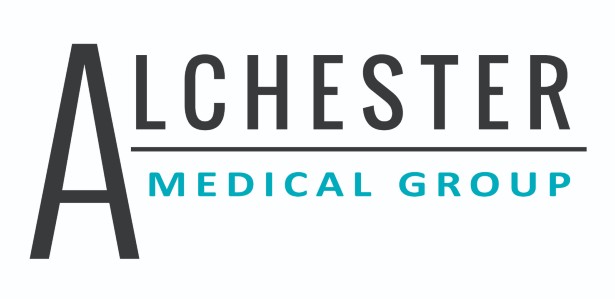NHS Health Check Results
When you've had your NHS Health Check, we'll send you a letter with your results and what they mean for you.
We'll also send you a results leaflet. You can view this leaflet by clicking the below button, but we'll also add the information here:
NHS HEALTH CHECK RESULTS LEAFLET
NHS Health Check Results Leaflet
Cardiovascular Risk
Everyone has some risk of developing cardiovascular disease (CVD) such as angina, heart attack, stroke, diabetes, or kidney disease. The aim of the health check is to find those people who may be at high risk, and to help them lower their risk and hopefully even prevent them from getting these diseases.
Characteristics which increase your risk are called risk factors. Some of these, such as family history or increasing age cannot be altered, but many risk factors can be changed. These are:
• Smoking
• High blood pressure
• Being overweight (as defined by your body mass index)
• High cholesterol
• Not taking much exercise
Your cardiovascular risk score takes into account your age, family history, and smoking status, as well as the measurements which were made during your health check.
Reducing your cardiovascular risk
Smoking
If you smoke then stopping smoking will benefit your health. If you would like help or advice then please telephone the Oxfordshire Smoking Cessation service on 0800 1223790 or Text QUIT to 60777.
Email - info@stopforlife.co.uk
Website – www.stopforlifeoxon.org
Blood Pressure
If your blood pressure was greater than 140/90 when we checked it during your health check then we will initially ask you to monitor your blood pressure at home over a 7 day period, then submit these readings to us. Raised blood pressure increases your risk of heart disease, stroke, and kidney disease. Reducing your weight and increasing the amount of exercise you take will help to lower your blood pressure.
Cholesterol
Cholesterol is a type of fat in your blood. We need some cholesterol but too much of it can contribute to clogging up your blood vessels. Much of our cholesterol comes from the fats eat in our diet. You can lower your cholesterol by eating a healthy balanced diet that is low in saturated fat. In some circumstances we also prescribe cholesterol lowering medication, Statins.
Further dietary information can be found at http://patient.info/health/low-fat-diet-sheet
Body mass index (BMI)
This is a comparison of your weight to your height. If your BMI is greater than 25 then you are classified as overweight, and if it is greater than 30 then you are classified as obese. This is a risk factor for heart disease, strokes, high blood pressure, and diabetes. You can help by reducing your weight and eating a healthy diet, increasing the amount of exercise you take. If you drink too much alcohol then reducing your alcohol consumption will also help. The recommended limits is 14 units a week.
Further information on alcohol is available at http://patient.info/health/alcohol-and-sensible-drinking
Risk score after your health check
Low risk (<10%)
Your risk of CVD in the next 10 years is less than one in ten. It is still worthwhile considering whether you can improve any of your risk factors as doing so will improve your health and help to protect you for the future.
Moderate risk (10-19%)
Please book an appointment with your usual GP so we can discuss if any further treatment is required. You should try to consider which of your risk factors you can reduce. Bear in mind that your score will increase further with age unless you can modify some of your risk factors.
High risk (20% or more)
Please make an appointment with your usual GP. Your risk of CVD disease in the next 10 years is one in five, or more, which is considered to be high risk. We strongly recommend that you consider which risk factors you can improve. Lifestyle changes will improve your risk score and in these circumstances we may also need to consider prescribing medication for your cholesterol, or for your blood pressure if it is raised.
Our nurses and healthcare assistants will be happy to help and advise you on ways to reduce your cardiovascular risk so feel free to make an appointment if you would like to discuss this further.
Things to Remember
The above patient leaflet is for general information. If your GP or nurse/HCA has had a discussion with you regarding your NHS Health Check results and the outcome of that discussion differes from the advice above, please follow the clinicians advice.
INDEX - Self-Help-Centre
Self-Help Information
- Online Consultation
- The NHS App
- Easy Read Information
- Pharmacy First
- Health A - Z
- Live Well
- Choose Well
- Age Well
- Alcohol and Drug Addiction Support
- Earwax and Age-Related Hearing Loss
- Dealing with Depression, Anxiety or Stress
- In Times of Bereavement
- MECS (Minor Eye Conditions Service)
- Pregnancy Care Planner
- Stop Smoking Help
- Weight Management
- Winter Health
- Youth Forum
Health Checks
We use cookies to help provide you with the best possible online experience.
By using this site, you agree that we may store and access cookies on your device. Cookie policy.
Cookie settings.
Functional Cookies
Functional Cookies are enabled by default at all times so that we can save your preferences for cookie settings and ensure site works and delivers best experience.
3rd Party Cookies
This website uses Google Analytics to collect anonymous information such as the number of visitors to the site, and the most popular pages.
Keeping this cookie enabled helps us to improve our website.

